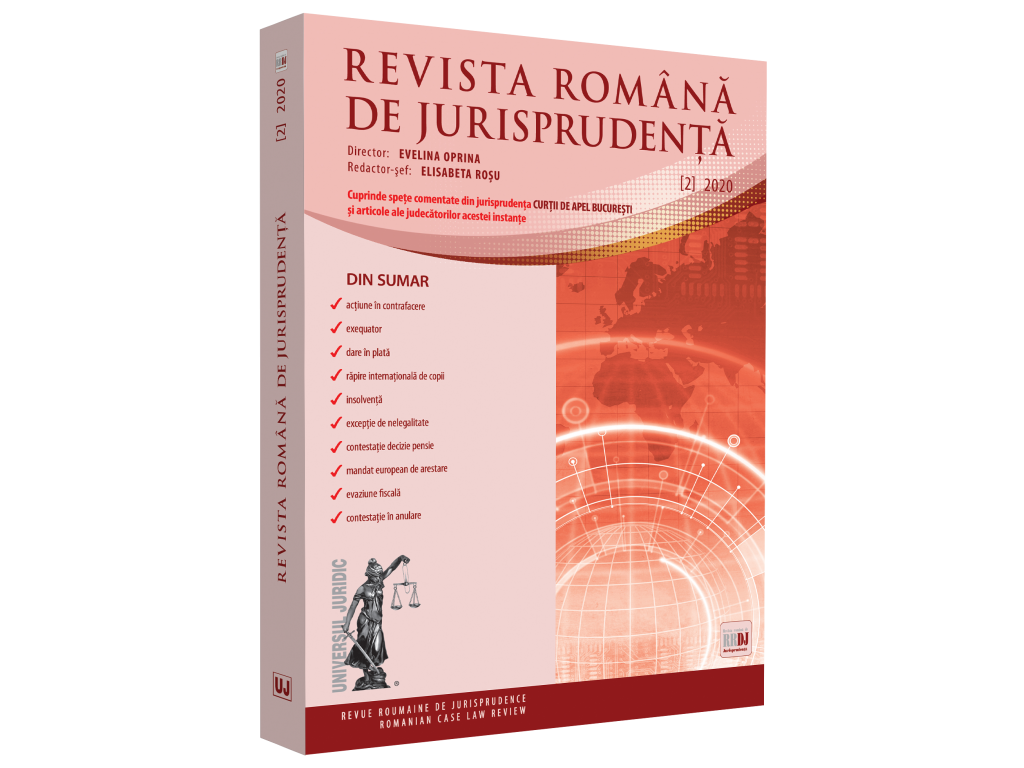International child abduction. Invoking the exceptional situation provided by art. 13 para. (2) of the Hague Convention. Consideration of the child’s opinion, including from the perspective of parental alienation. The need for an expert legal psycholog
DREPT CIVIL ȘI DREPT PROCESUAL CIVIL
Abstract
In order for the court to uphold the applicability of the exception situation provided for under art. 13 para. (2) of the Hague Convention, the effect of which shall be the rejection of the claim for the child’s return, it is necessary to establish the fact the minor child has the necessary maturity to express his own opinion, supposing that he should be able to realize which is the alternative that better matches his interests, as well as that his will shall not be vitiated by the kidnapping parent’s behaviour. Parental alienation represents the action exercised by either parent over the child, who is emotionally abused by thoughts, actions and verbal or non-verbal manners, for the purpose of determining him to believe that the other parent is his enemy or to suggest the latter’s hostility or inferiority. The court of first instance wrongly applied the provisions of art. 13 para. (2) of the Hague Convention, due to the fact that it exclusively based its court order on the minor’s will expressed upon his hearing, without concretely showing which are the issues based on which the degree of maturity necessary to validate his option is acknowledged, under the circumstances in which contradictory evidence is enclosed to the case file.








